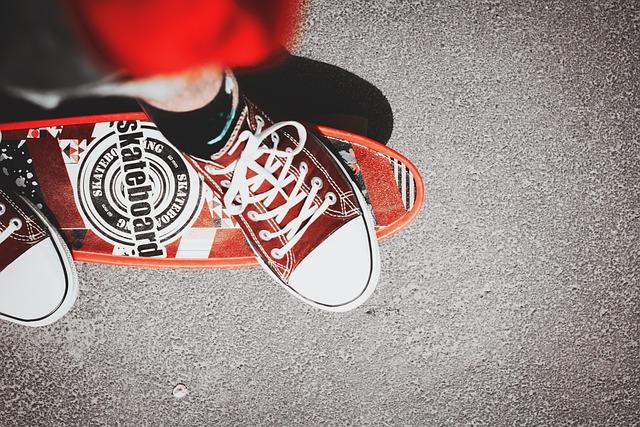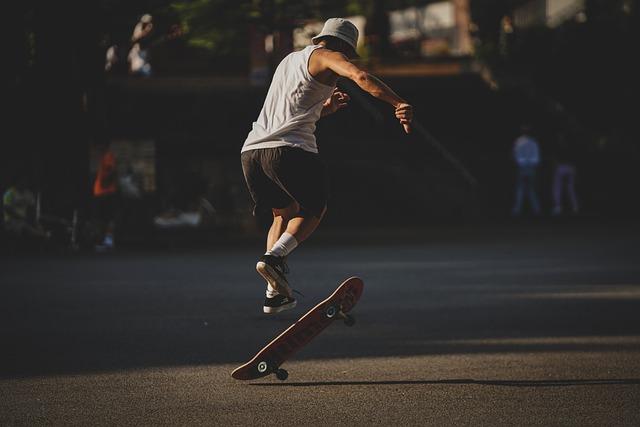In recent years, the inclusion of skateboarding in the Olympic Games has sparked a vibrant discourse among athletes, enthusiasts, and critics alike. While the sport’s debut at the Tokyo 2020 Olympics was celebrated as a milestone, marking its transition from counterculture to mainstream recognition, it has also raised pressing questions about the impact of standardized Olympic regulations on the essence of skateboarding. This article delves into the complexities surrounding the integration of skateboarding into the Olympic framework, examining whether the imposition of uniform rules and judging criteria is undermining the sport’s inherent creativity and spontaneity. By analyzing the perspectives of professional skateboarders, coaches, and industry experts, we aim to explore whether the quest for global legitimacy and competitive fairness is inadvertently stifling the very spirit that makes skateboarding unique.
Impact of Olympic Regulations on Skateboardings Core Culture
As skateboarding made its Olympic debut, the incorporation of standardized regulations has sparked intense debate among enthusiasts. Purists argue that the essence of skateboarding—rooted in rebellion, creativity, and self-expression—is being diluted. The sport, once a symbol of counterculture, now faces constraints that prioritize uniformity over individuality. Olympic rules, with their rigid criteria and scoring systems, seem to clash with the free-spirited nature that has historically defined the skateboarding community.
- Standardization vs. Creativity: The introduction of set rules and regulations may stifle the creativity that is the lifeblood of skateboarding. Tricks and styles that were once celebrated for their uniqueness now must conform to a predefined scoring system.
- Commercialization Concerns: With Olympic inclusion, there is an increased risk of commercialization overshadowing the grassroots culture. This shift might prioritize sponsorships and media appeal over authentic community values.
- Cultural Shift: Skateboarding’s transition into a mainstream sport could lead to a cultural shift, alienating core skaters who value the sport’s underground roots.
While Olympic exposure brings new opportunities and visibility, it also poses a challenge to maintain the sport’s original spirit. Balancing the benefits of global recognition with the preservation of skateboarding’s unique culture remains a pivotal issue.

Evaluating Judging Criteria: Are They Aligned with Skateboardings Spirit
The essence of skateboarding is rooted in creativity, freedom, and self-expression, values that seem at odds with the rigid structure of Olympic judging criteria. Traditional skateboarding culture celebrates individuality and style, yet the current competitive framework tends to prioritize technical difficulty and execution over these core elements. This raises the question: are we losing the spirit of skateboarding to the pursuit of medals?
- Technical Difficulty: While it’s essential to acknowledge the skill involved in complex tricks, focusing solely on difficulty can overshadow the unique flair that defines a skater’s personal style.
- Consistency vs. Creativity: The need for consistency in scoring can sometimes penalize skaters who take creative risks, an integral part of skateboarding’s rebellious nature.
- Standardization: The drive to standardize judging criteria could inadvertently stifle the innovation and spontaneity that have long been hallmarks of the sport.
As the sport continues to evolve on the Olympic stage, it’s crucial to consider whether the current judging system can adapt to embrace skateboarding’s unique spirit, or if it will continue to impose limitations that could alter its very essence.

The Role of Standardization: Balancing Safety and Creativity in the Sport
Standardization in Olympic skateboarding aims to establish a framework that ensures both safety and fairness across the board. The regulations are designed to protect athletes from harm while maintaining a level playing field. Safety gear like helmets and pads are mandated, and courses are built to minimize the risk of severe injury. These measures are not arbitrary; they are essential for preventing accidents in a sport that inherently involves high-speed maneuvers and complex tricks.
However, there is an ongoing debate about whether these standardized rules stifle the creativity that is the lifeblood of skateboarding. Critics argue that the rigid scoring systems and predetermined course layouts can limit the spontaneous and innovative spirit that has long defined the sport. Key points of contention include:
- The potential for standardized courses to reduce the diversity of tricks and styles.
- Scoring criteria that may favor technical precision over originality and flair.
- Concerns that safety regulations could lead to a more conservative approach to skateboarding.
Balancing safety and creativity is indeed a tightrope walk, but it is crucial for preserving the essence of skateboarding while adapting it for a global audience.
Recommendations for Preserving Skateboardings Authenticity in Olympic Competitions
- Maintain Street Credibility: One of the key aspects of skateboarding’s allure is its roots in street culture. To preserve this, competitions should incorporate more street-style elements, allowing skaters to demonstrate creativity and spontaneity. Judges should prioritize innovative tricks and the unique style of each skater, rather than strictly adhering to predefined criteria.
- Inclusive Judging Panels: To ensure a well-rounded assessment, include judges who have extensive experience in the skateboarding community, not just in competitive sports. This can help bridge the gap between traditional competition formats and the sport’s underground ethos, ensuring that authenticity is respected and valued.
- Adaptive Scoring Systems: Develop scoring systems that reward originality and artistic expression alongside technical proficiency. By valuing creativity, the Olympic format can stay true to skateboarding’s essence, encouraging skaters to push boundaries rather than conforming to rigid standards.
- Community Engagement: Engage with the skateboarding community to gather input and feedback on competition formats and rules. This participatory approach can help maintain the sport’s authenticity, as those who live and breathe skateboarding will have a say in how it is represented on the world stage.










